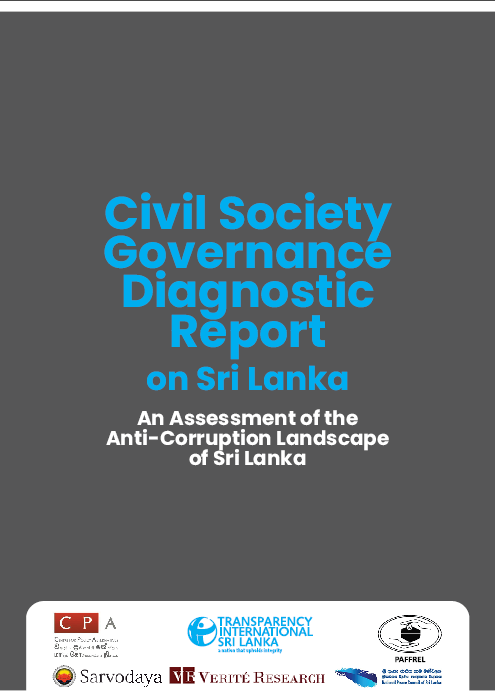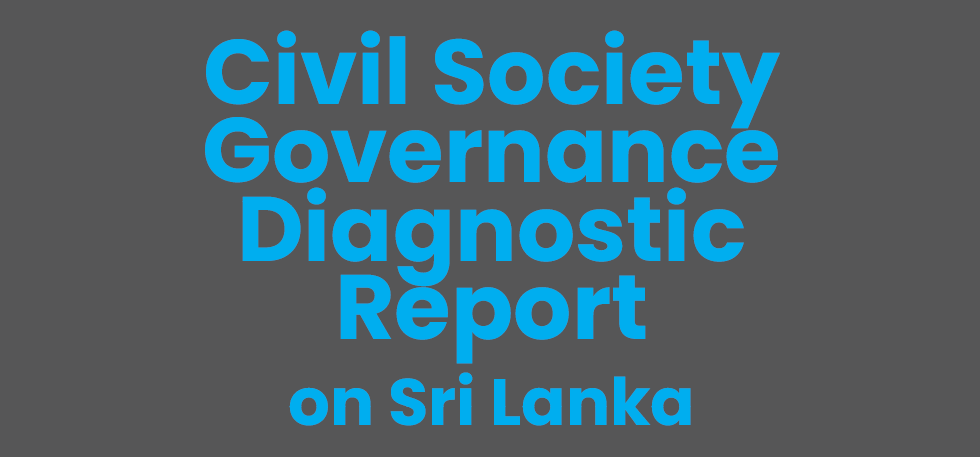
The Civil Society Governance Diagnostic Report on the Anti-Corruption Landscape of Sri Lanka introduces a comprehensive set of governance reform recommendations designed to address the root causes to the current crisis in the nation. This report, the result of an in-depth study, identifies and prioritises key aspects in governance that require systematic attention from both a public opinion and economic governance perspective
This collaborative effort, reflecting the crucial socio-political moment of reform in Sri Lanka, was led by Transparency International Sri Lanka (TISL) in partnership with a core group consisting of Verité Research, the Centre for Policy Alternatives (CPA), Sarvodaya, People’s Action for Free and Fair Elections (PAFFREL) and the National Peace Council (NPC). Together, they formed the “Civil Society Initiative on Anti-Corruption Reform for Economic Recovery”, with the shared understanding that the country is in a governance crisis embedded in deep rooted corruption, which must be addressed, if we are to strive towards actual, sustainable and equitable economic recovery.
The report benefited from input provided by over 250 participants representing diverse sectors, geographical locations, ethnic, religious, and cultural groups. Prof. Arjuna Parakrama, an esteemed researcher, conducted the research for the Civil Society Initiative.
The High-Level Launch of the ‘Civil Society Governance Diagnostic Report on Sri Lanka’ took place on Wednesday, 13th September at the BMICH in Colombo. The event saw the participation of policymakers, representatives from the International Monetary Fund (IMF), diplomatic missions, international funding institutions, civil society organizations, academics, and distinguished guests from various other sectors.
A quote from the Report underscores its urgency: “The current growing sense of economic injustice has been exacerbated by the fact that the architects of the economic crisis do not bear any part of the burden of its proposed reform, which has been, again, firmly thrust, without any public dialogue, on the victims of this very crisis.”
Furthermore, it highlights, “Corruption is the core issue that determines the nature of the Sri Lankan polity. In fact, corruption has spread so far and wide that the country is currently facing imminent State Capture, which prevents public institutions from fulfilling their roles.”
The report also reveals that among the high-probability and high-risk tactics used in Sri Lanka are the structural weakening of the country’s accountability framework, influence and interference with public officials, abuse of state-owned enterprises, manipulation of public procurement procedures, suppression of civil society, and the use of illicit financial transactions.
Download:

